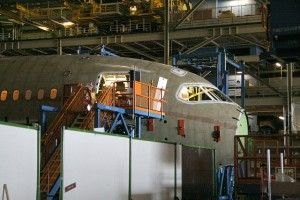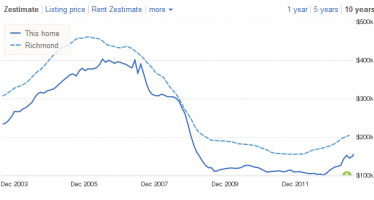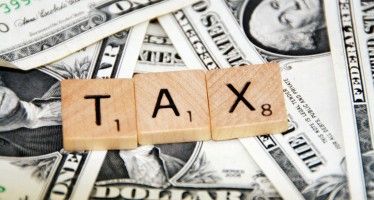Investment Tax Credit Could Boost CA Jobs
By KATY GRIMES
One senator is trying to offer California manufacturers a break to help stimulate business growth. But even his modest sales-tax credit was met with resistance in a hearing at the Capitol on Wednesday.
Inland Empire Republican Sen. Bob Dutton authored SB 395, which would provide a 6 percent manufacturer’s investment tax credit on equipment purchases before July 1, 2011, and 5 percent after the July date.
Dutton explained to the Senate Committee on Governance & Finance that the exemption is not a tax break, but a partial exemption of sales tax on equipment purchases. It only assists a business that is making an equipment purchase.
Since 2000, California has lost 600,000 manufacturing jobs, according to the California Manufacturers and Technology Association (CMTA). “Many of the jobs are good paying jobs,” said Dutton. A Senate committee analysis reported, “These jobs represent quality middle class careers that have an average wage of $60,000, provide for upward mobility and typically include health benefits.”
And manufacturers have a large financial impact on a network of suppliers and vendors, which also employ thousands of Californians.
The Manufacturer’s Investment Tax Credit of 1994 (MIC) was first enacted to stop the mass exodus of manufacturing jobs to other states or countries during the recession of the early 1990s. That’s a place we find ourselves again since the investment credit ended in 2003.
And the U.S. recession that began in 2007 has been especially devastating in California, which still has 12.4 percent unemployment, second highest among the 50 states. The recovery that began in 2009 has been modest.
During the decade the MIC was in effect, more than 265,000 manufacturing jobs were created.
“California is only one of three states in the U.S. that taxes manufacturing equipment purchases with no credit or exemption,” said Dutton, a statement supported by the CMTA. He added that “the current policy has resulted in less production in California. Out-of-state companies electing to grow elsewhere and in-state companies continuing to shift workers or facilities to other regions that do not burden capital investments with excess taxation.”
What many do not realize is that there is an additional 1 percent tax assessed on manufacturing equipment annually, like a personal property tax on the business, benefitting the state well beyond just the potential for increased sales tax and employment taxes.
Despite the apparent benefits, some claim that SB 395 would result in a revenue loss to the state. “There is no debate on this — this bill costs too much,” said Sen. Christine Kehoe, D-San Diego. Kehoe said the state was faced with the possibility of losing up to $1 billion in revenue, while also losing “important programs,” and questioned the public policy of the issue.
High-Cost California
SB 395 would provide manufacturers some relief from the high cost of doing business in the state. According to the Milken Institute’s annual study, that cost is currently more than 23 percent higher than the national average. “Removing barriers to investments to promote new machinery and equipment purchases in California will only serve to foster productivity gains, making manufacturers more competitive and allow them to keep employees and grow the middle class in California,” the CMTA said.
Lenny Goldberg, executive director of the California Tax Reform Association, opposed the bill. He said, “It’s not really an incentive.” And Goldberg also stated his concern for “the substantive revenue loss.”
But Dutton’s press secretary, Larry Venus, reported that the idea behind the tax exemption is to “stimulate something that is not currently happening.”
Venus provided Dutton’s staff analysis, which found a substantial jobs-creation stimulus. Referencing Milken Institute research, they found “a 5-cent reduction in sales tax for the purchase of manufacturing equipment would create 500,000 jobs over 10 years, of which 140,000 would be created in manufacturing, and contribute $459 million in new net revenues to the state.”
Reinstatement of the exemption would reduce operating costs and help California companies become competitive in the marketplace.
Double Taxation
The exemption also would go a long way toward ending double taxation, which California manufacturers have suffered under for many years. “Most states recognize that exempting equipment used in manufacturing or research and development from the sales tax eliminates a double tax on businesses. Property is taxed when it is purchased (sales tax) and later it is taxed as business personal property (property tax),” stated Dutton’s analysis.
For many years California was the national leader in the development of technology. Yet now technology manufacturing has been shifting to other states. And now the state has fallen far down in nationwide rankings for tax incentives to attract businesses, according to the Tax Foundation.
According to the CMTA, Dutton’s bill would at least offer a proven option for manufacturing business owners: “A new and improved tax treatment for manufacturing and R&D investments will send a strong message that California is able to maintain fair and stable tax policies and to make the state more business-friendly even during difficult economic times.”
SB 395 passed out of the committee by a vote of six for and three against.
Related Articles
Lawmakers’ paid-for jaunts prompt new disclosure bill
Year in and year out, California lawmakers take advantage of one area where freebees are legal: travel. In 2013, they
Richmond mayor wants mortgages on million-dollar homes
Political theater isn’t reserved for Tea Party and Occupy movement protesters. Another example was on display Aug. 15 at Wells
Despite record tax haul, legislators pursue further increases
With a big tax surplus flowing into state coffers, California shattered records last year with a historic haul dwarfing those of other large states





